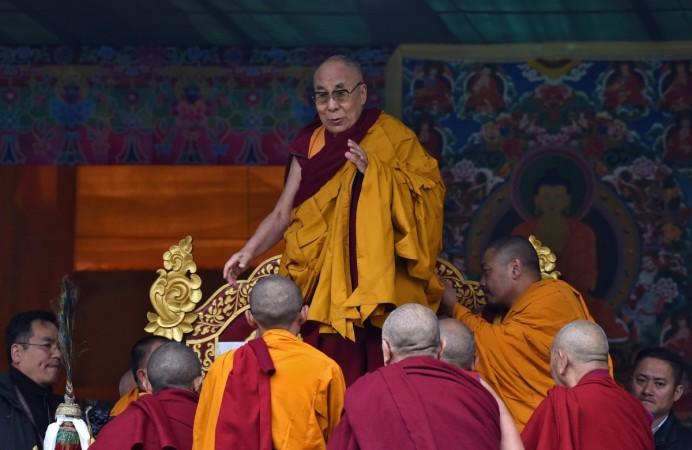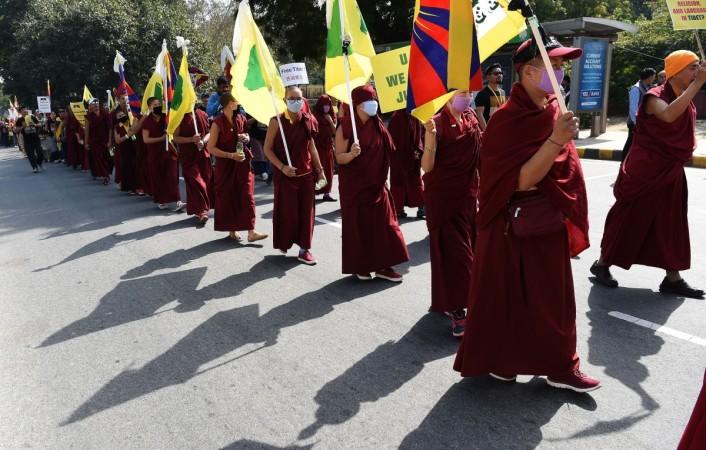
In a message that is being seen as a snub to China, spiritual leader of Tibetan Buddhism the Dalai Lama on Monday, March 18, said that after his death his incarnation could be found in India and any successor named by China would not command any respect from the followers. The 14th Dalai Lama has been living in exile in India for the last 60 years and holds the nation close to his heart.
He made the statement when he spoke to Reuters from his office in McLeodganj, a day after the town of Dharamshala celebrated the anniversary of his escape from the Tibetan capital of Lhasa. The spiritual leader is known to have crossed over to India in 1959 through Tezpur in Assam disguised as a soldier.
The Dalai Lama, who was identified as the reincarnation of his predecessor when he was just two years old, has since lived in McLeodganj and has been working towards drawing global attention and support for linguistic and cultural autonomy in Tibet and advocating the rights of Tibetans.
However, China has often labelled the Dalai Lama as a dangerous separatist and the spiritual leader believes that Beijing might name a successor after his death.
"China considers Dalai Lama's reincarnation as something very important. They have more concern about the next Dalai Lama than me," he told Reuters. "In future, in case you see two Dalai Lamas come, one from here, in free country, one chosen by Chinese, then nobody will trust, nobody will respect (the one chosen by China). So that's an additional problem for the Chinese! It's possible, it can happen," he added, laughing.
Why China could name a successor
China, which took control of Tibet in 1950, believes that it has the right to approve the Dalai Lama's successor and has said that the right was inherited from Chinese emperors. However, Tibetans have often spoken against it and believe that this was China's way of trying to exert control over the Tibetans. They believe that China would name such a successor, through who the nation would want to keep tabs on and influence the Tibetan community.

The 83-year-old also said that continuing the legacy of the Dalai Lama depended on the Tibetans, who could keep the role or let it go. He added that the same could be discussed during a meeting of Tibetan Buddhists in India later this year and if there was an incarnation, he would have no political roles as the Dalai Lama gave them up in 2001.
"If the majority of (Tibetan people) really want to keep this institution, then this institution will remain," he said. "Then comes the question of the reincarnation of the 15th Dalai Lama."
However, he did explain that in case the Tibetans decide to let go of the roles of the Dalai Lama, the teachings will still remain similar to the case of Buddha, whose teachings are still followed even though he had no reincarnation.
The Dalai Lama and relation with China
Speaking of Beijing and his relations and why he prefers to live in India, the Dalai Lama said that China is a wonderful nation, but needs to give its people a sense of freedom. And if he is ever allowed to visit, he said he would like to speak about things such as cosmology, quantum physics, psychology, and neurobiology at Chinese universities.
"China - great nation, ancient nation - but its political system is totalitarian system, no freedom. So therefore I prefer to remain here, in this country," he added. "Our strength, our power is based on truth. Chinese power based on gun. So for short term, gun is much more decisive, but long term truth is more powerful."
He also said that there has been more contact between Tibetans living in their homeland and in exile in recent times, but none of it was official or through formal meetings. He also revealed that some retired Chinese officials and businessman do visit him sometimes, but none of this is done in a official capacity.















